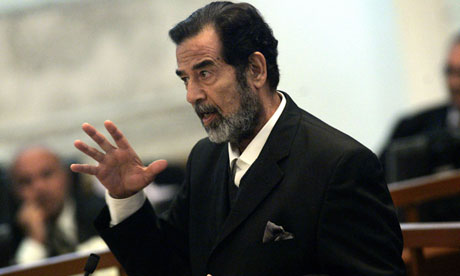India's economic problems reflect a global boom-to-bust pattern. Why do policymakers act surprised?

'The Indian economy has been in trouble for quite a while already, and only wilful blindness could have led to ignorance on this.' Illustration: Daniel Pudles
So now India is the latest casualty among emerging economies. Over the past 10 days, the rupee has slid to its lowest-ever rate, and the Indian economy may well be on the verge of a full-blown currency crisis. In this febrile situation, it is open season for rumours and pessimistic predictions, which then become self-fulfilling.
This means that even if there is a slight market rally, investors quickly work themselves into even more gloom. Each hurriedly announced policy measure (raising duties on gold imports, some controls on capital outflows, liberalising rules for capital inflows and so on) has had the opposite of the desired effect. Everything the government does seems to be too little, too late – or even counterproductive.
These are all classic features of the panic phase of a financial market cycle. This doesn't mean that a crash is inevitable, but clearly it is possible. The real surprise in all this is that investors and Indian policymakers are surprised. For some reason, they apparently did not foresee this turn of events, even though the story of every financial crisis of the past, and many in the very recent past, should have caused some nostrils to twitch at least a year or two ago.
The Indian economy has been in trouble for quite a while already, and only wilful blindness could have led to ignorance on this. Output growth has been decelerating for several years, and private investment has fallen for 10 consecutive quarters. Industrial production has declined over the past year. But consumer price inflation is still in double digits, providing all the essential elements of stagflation (rising prices with slowing income growth).
At the moment the external sector is the weakest link. Exports are limping along but imports have ballooned (including all kinds of non-essential imports like gold), so both trade and current account deficits are at historically high levels. They are largely financed by volatile short-term capital. This has already started leaving the country: since June more than $12bn has been withdrawn by portfolio investors alone.
This situation is the result of internal and external imbalances that have been building up for years. The Indian economic boom was based on a debt-driven consumption and investment spree that mainly relied on short-term capital inflows. This generated asset booms in areas such as construction and real estate, rather than in traded goods. And it created a sense of financial euphoria that led to massive over-extension of credit to both companies and households, to compound the problem.
Sadly, this boom was also "wasted" in that it did not lead to significant improvements in the lives of the majority, as public expenditure on basic infrastructure, as well as nutrition, health, sanitation and education did not rise adequately.
We should know by now that such a debt-driven bubble is an unsustainable process that must end in tears, but those who pointed this out were derided as killjoys with no understanding of India's potential. Something similar is occurring in a number of other Asian economies that are also feeling the pain at present, such as Indonesia – while the Brazilian economy shows some similar features. The current Indian problems may be extreme, but they reflect what should now be a familiar process in all major regions of the world.
The typical story, which was elaborated half a century ago by Charles Kindleberger, goes something like this: a country is "discovered" by international investors and therefore receives substantial capital inflows. These contribute to a domestic boom, and also push up the real exchange rate. This reduces the incentives for exporters and producers of import substitutes, so investors look for avenues in the non-tradable sectors, such as construction and real estate. So the boom is marked by rising asset values, of real estate and of stocks. The counterpart of all this is a rising current account deficit, which no one pays much attention to as long as the money keeps flowing in and the economy keeps growing.
But all bubbles must eventually burst. All it takes is some change in perception for the entire process to unravel, and then it can unravel very quickly. The trigger can be a change in global conditions, or a sharp slowdown in domestic income growth, or political instability, or even economic problems in a neighbouring country. In India Ben Bernanke of the US Federal Reserve is being blamed for bringing this on, but it could easily have been some other factor. Once the "revulsion" in markets sets in, the very features that were celebrated during the boom are excoriated – by both investors and the public – as examples of crony capitalism, inefficiency and such like. The resulting financial crisis hits those who did not really benefit so much from the boom, by affecting employment and the incomes of workers.
This is what has just started to happen in India, and is also likely to happen in several other emerging markets. But essentially the same process has already unfolded many times before in different parts of the world: Latin America in the 1980s, Mexico in 1994-95, south-east Asia in 1997-98, Russia in 1999-2000, Argentina in 2001-02, the US in 2008, Ireland and Greece in 2009, and so on.
Why are we so startled each time? And why do we never, ever, see it coming?


